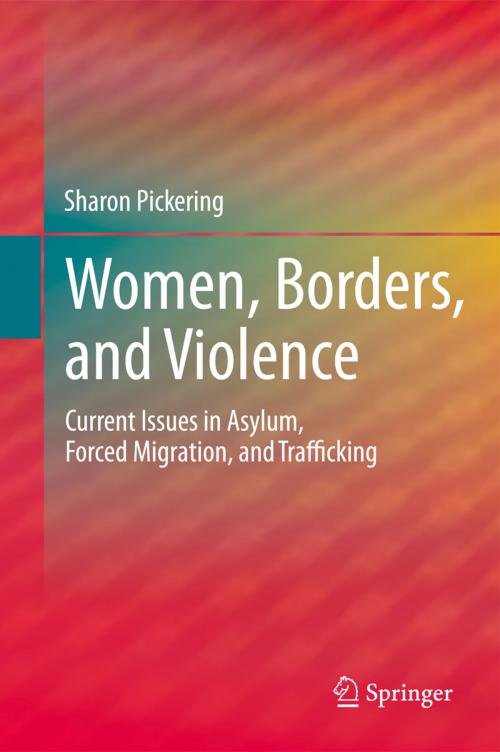Women, Borders, and Violence
Current Issues in Asylum, Forced Migration, and Trafficking
Nonfiction, Social & Cultural Studies, Social Science, Crimes & Criminals, Criminology, Political Science| Author: | Sharon Pickering | ISBN: | 9781441902719 |
| Publisher: | Springer New York | Publication: | December 21, 2010 |
| Imprint: | Springer | Language: | English |
| Author: | Sharon Pickering |
| ISBN: | 9781441902719 |
| Publisher: | Springer New York |
| Publication: | December 21, 2010 |
| Imprint: | Springer |
| Language: | English |
Women at the Border analyzes border policing practices currently informed by paradigms of securitization against unauthorized mobility and explores the potential for a paradigm shift to a more ethical regulation of borders. By focusing on the ways women have sought to cross borders in ‘extra’-legal fashion, the book shows how border enforcement differentially impacts on some populations and makes the case that unauthorized migration requires management rather than repulsion and criminalization. When facing the emerging and future challenges of unauthorized mobility, border policing must be recast as a function of human rights that results in greater human security at the border. Examining gender and border policing across Europe, North America and Australia, this book enhances our understanding of the gendered determinants of ‘extra’-legal border crossing, border policing and the changing dynamics of unauthorized mobility.
Women at the Border analyzes border policing practices currently informed by paradigms of securitization against unauthorized mobility and explores the potential for a paradigm shift to a more ethical regulation of borders. By focusing on the ways women have sought to cross borders in ‘extra’-legal fashion, the book shows how border enforcement differentially impacts on some populations and makes the case that unauthorized migration requires management rather than repulsion and criminalization. When facing the emerging and future challenges of unauthorized mobility, border policing must be recast as a function of human rights that results in greater human security at the border. Examining gender and border policing across Europe, North America and Australia, this book enhances our understanding of the gendered determinants of ‘extra’-legal border crossing, border policing and the changing dynamics of unauthorized mobility.















